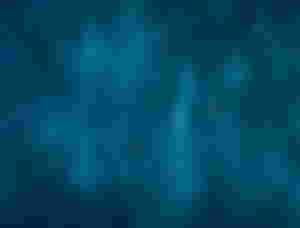The Philippine An Overview of the Colonial Era
Hello Good evening 😁 its me again @Lejay28 .
Just want to share this for you. Proud from Philippines.
This article shows all about the Philippine history, a deep history that is actually difficult to contrast and cope because of a very long colonization event. We all know where the name Philippines come from, it is named after King Philip II of Spain (1556-1598) and it was a Spanish colony for over 300 years. The Spaniards has a great influence and actually dominated in the philippines . The Island

Today the Philippines is an archipelago of 7,000 islands. The islands were part of the larger Spanish East Indies. Forty- four years after Ferdinand Magellan landed in the Philippines and died in the Battle of Mactan in 1521, the Spanish explored and colonialized the island, starting with the founding of Cebu by Miguel Lopez de legazpi in 1565. But later, in 1571, Manila was made to be the capital of the Philippines. This was the time of the reign of King Philip II of Spain. It is believed that Philippines was named after King Philip II of Spain (1556-1598). The Spanish colonial period ended with the Philippine Revolution and Spanish-American War in 1989, and the beginning of the American colonialization of the Philippines and soon with the other countries.
However it is believed that during the last ice age they were joined to mainland Asia by a land bridge, enabling human beings to walk from there. The first people in the Philippines were hunter-gatherers. However between 3,000 BC and 2,000 BC people learned to farm. They grew rice and domesticated animals. From the 10th AD century Filipinos traded with China and by the 12th Century AD Arab merchants reached the Philippines and they introduced Islam. Then in 1521 Ferdinand Magellan sailed across the Pacific. He landed in the Philippines and claimed them for Spain. Magellan baptized a chief called Humabon and hoped to make him a puppet ruler on behalf of the Spanish crown. Magellan demanded that other chiefs submit to Humabon but one chief named Lapu Lapu refused. Magellan led a force to crush him. However the Spanish soldiers were scattered and Magellan was killed. The Spaniards did not gain a foothold in the Philippines until 1565 when Miguel Lopez de Legazpi led an expedition, which built a fort in Cebu. Later, in 1571 the Spaniards landed in Luzon. Here they built the city of Intramuros (later called Manila), which became the capital of the Philippines. Spanish conquistadors marched inland and conquered Luzon. They created a feudal system. Spaniards owned vast estates worked by Filipinos. Along with conquistadors went friars who converted the Filipinos to Catholicism. The friars also built schools and universities. The Spanish colony in the Philippines brought prosperity - for the upper class anyway! Each year the Chinese exported goods such as silk, porcelain and lacquer to the Philippines. From there they were re-exported to Mexico. In 1892 Jose Rizal founded a movement called Liga Filipina, which called for reform rather than revolution. As a result Rizal was arrested and exiled to Dapitan on Mindanao. Then in 1898 came war between the USA and Spain. On 30 April 1898 the Americans defeated the Spanish fleet in Manila Bay. Meanwhile Filipino revolutionaries had surrounded Manila. Their leader, Emilio Aguinaldo declared the Philippines independent on 12 June. However as part of the peace treaty Spain ceded the Philippines to the USA. The Americans planned to take over. War between American forces in Manila and the Filipinos began on 4 February 1899. The Filipino-American War lasted until 1902 when Aguinaldo was captured. However in December 1941 Japan attacked the US fleet at Pearl Harbor. On 10 December 1941 Japanese troops invaded the Philippines. They captured Manila on 2 January 1941. By 6 May 1942 all of the Philippines were in Japanese hands. However American troops returned to the Philippines in October 1944. They recaptured Manila in February 1945. The Philippines became independent on 4 July 1946. Manuel Roxas was the first president of the newly independent nation. Today the Philippines is still improving and many things are changing and it has a great testimony to its pass by on what happen on the Philippines on early stage ago.
My comment:
For me the colonial experiences of the Philippines have greatly influenced the preservation of the nation’s literary cultural heritage and built cultural heritage. Apparently, colonial experience has defined how heritage is treated and conserved. The colonial legacy has set a precedent that destroys the old practices, ways of life, structures and edifices to favour the creation of a new set of world order, thus setting a culture of neglect and disregard for cultural heritage conservation. Apparently, the politics of memory and the quest for a new identity has influenced how heritage conservation is defined and perceived. From the time before the Philippines was discovered by the Europeans and the way the nation was passed on from one colonizer to another, minimal sense of heritage conservation was developed. The perception that anything related to the historical past is a sign of antiquity and underdevelopment has comprised the way present communities perceive development. Henceforth, cultural heritages are given the least importance unless its relationship with economic activities has been clearly established. This study connects the implications of the Philippines’ rich colonial experience to approaches of heritage conservation in the country and in the end presents a way of how to possibly reverse some of its impact. The study presents an exploratory and descriptive approach using case studies of heritage districts in the Philippines that illustrate how a practice of cultural neglect can be converted to culture of concern and conservation through the development of creative industry and culture capital.
Thank you for reading. Hope you learned something from our country.!
Godbless!!



thank you for sharing your thoughts about colonization of the Philippines